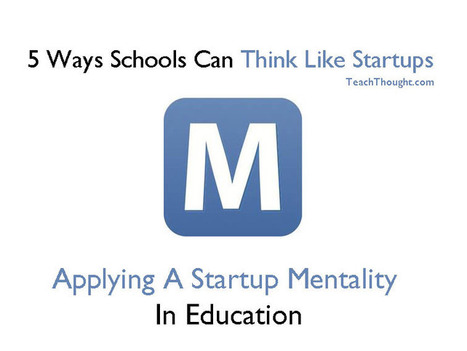This is the age of the startup.
The age where a teenager can change the world from his basement, and almost daily new apps and platforms are launched with the modest goal of, well, changing the world. In this age, Pete Cashmore and Mark Zuckerberg have more social capital than Ford or General Mills.
This marks quite the shift from the themes of the 1990s, where profit was king, industry was ruggedly industrial (as opposed to digital), and the phrase “nothing personal–strictly business” found a lot of use.
But there is more going on than is immediately visible. The field (industry?) of public education is struggling not just to correct its inefficiencies, but to define itself entirely. And with the adoption of truly national standards in the Common Core movement, the possibility of pockets of unique academic “identity” emerging across the nation have been reduced in pursuit of uniformity and sameness.
Unlike other businesses, public education can’t “fail.” It can certainly perform poorly, but parallel to the federal government itself, it is able to operate at a net loss–financial, human, and otherwise–for decades on end.
(One stinging irony being that of reduced social capacity: the more mediocre the education is each generation, the less likely such mediocrity will be spotted en masse, as it is obscured by a cultural blind spot, where “ed reformers” simply bang their heads together while the public itself waits for change.)
In the cycle of free markets, there is a natural flow where a need is identified, addressed, and then addressed again more efficiently by competition, offering a kind of evolution that weeds out non-performance and rewards new thinking.
Unfortunately, this is only possible sporadically in formal learning environments–online learning, charter schools, and even the burgeoning homeschooling market. So maybe the startup mentality has something to offer education–some lessons to not only pursue reform, but to understand itself better in the process.
Via Edumorfosis



 Your new post is loading...
Your new post is loading...







